Journalist Harold Briley, most famous here as the BBC correspondent who covered the 1982 South Atlantic war, lost a long battle against cancer last Monday, surrounded by his family.
He was born in Liverpool in 1931 in the Anfield area – today of “You’ll never walk alone” football fame but then one of the poorest neighbourhoods of Merseyside. Evacuated to Wales with the war in 1939, he returned to Liverpool in 1941, only to be blown out of his bed by a German bomb, prompting him to move to the Isle of Man halfway across the Irish Sea where he completed his schooling and cut his teeth as a reporter from the age of 17.
Following military service in the Royal Artillery, he moved back to Lancashire in 1954, working as a reporter on the Manchester City News and the Liverpool Post and Echo until 1960 when his long career of three decades with the BBC began. Covering “Today in Parliament,” he became the first-ever political correspondent for the BBC World Service.
In 1971, he was assigned to India and Pakistan where he had his baptism of fire with the Bangladesh War. In 1979, he covered the Iranian Revolution, which at times put him in serious personal danger.
Sent in 1979 as the BBC’s Latin America Correspondent to cover the Sandinista Revolution in Nicaragua, Harold made Buenos Aires his base. From there he covered the military dictatorship in Argentina, reporting for three years on the military junta’s atrocities against those who opposed it and drawing many threats as a result. He also covered the repression in Chile under the Augusto Pinochet regime.
In April, 1982, he was the first to break the news internationally of the Argentine invasion. He then covered the entire war. He provided accurate reports which, broadcast via the BBC World Service, gave great comfort and hope to the islanders then under Argentine occupation. He had to send his family to safety in Rio de Janeiro, because of the war.
After the war, he interviewed, or met, many of the leading military and political figures on both sides including Margaret Thatcher, whom he accompanied to the islands, and Governor Rex Hunt. He also interviewed General Mario Menendez (Malvinas Military Governor), and Admiral Juan José Lombardo, who had updated an earlier Argentine invasion plan.
Harold spent the seven remaining years of his BBC career as defence correspondent until retiring to Sussex in 1990. He was awarded the OBE for services to journalism and broadcasting.
In 1993, Harold began 12 years as the co-editor of the Falkland Islands Newsletter. He also acted from 2000 to 2014 as the British correspondent for the Montevideo-based news agency Mercopress.
In 2022, just a year before his death, Harold published his book the Fight for Falklands Freedom: Reporting Live from Argentina and the Islands, which covered the 1982 war and the attempts by the Foreign Office to sell the islanders out in shady deals with Argentina in the years leading up to the conflict. That same year the Falklands Islands Government gave the name of Harold Briley Park to the top of Sapper Hill overlooking Stanley.
Harold is survived by his wife Norah whom he met on the Isle of Man during World War II and with whom he celebrated his diamond wedding, and by two children, Heather and Kevin.
– TIMES [with thanks to Peter Pepper]













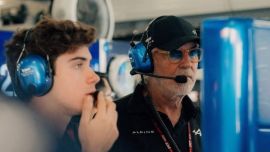


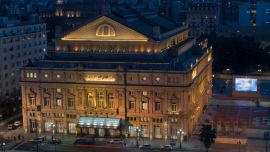
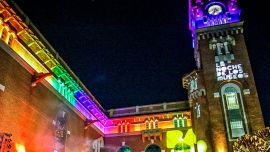
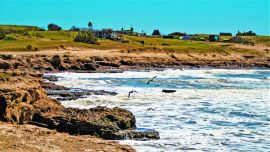

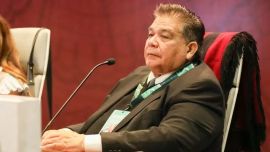
Comments